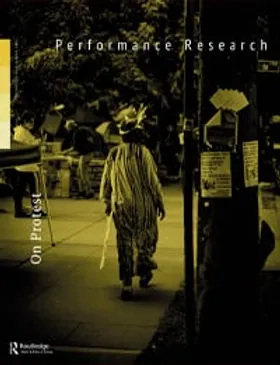Nursing in Haiti
Trauma, troops
and recovery
Montreal nurse and veteran street activist
Scott Weinstein returns from Haiti and
reports that despite enormous challenges,
a resilient people are carrying on
TENTS AS WARDS: Weinstein (R) with volunteer nurse
Martha Lolangne (L), Dr. Fritz Lolangne and patient Jean-Pierre Paris
by MATT JONES
After two weeks toiling in the trauma tent of a makeshift emergency ward in Port-au-Prince, Montreal nurse and long-time activist Scott Weinstein heads home today, moved by the resilience of the Haitian people. The Mirror spoke to him over the phone from his lodgings in Haiti.
“They’re really tough,” Weinstein says. “All the Europeans and North Americans were shaking our heads at the lack of pain being expressed by the folks here and the lack of pain medication we’re being asked to give—I mean, we offer it and often people refuse. It’s just a different culture.”
Weinstein, who has lived in Montreal since 1965, travels frequently to his native Washington D.C. to work as a freelance nurse in the strained public health system. He had just arrived there on Jan. 12, when the 7.0 earthquake hit the Haitian capital. He got in touch with Partners in Health (pih.org) and bought himself a ticket on a flight to Port-au-Prince.
Weinstein, who has lived in Montreal
since 19XX, travels frequently to his native Washington D.C. to work
as a freelance nurse in the strained public health system. He had
just arrived there on January 12, when the 7.0 earthquake hit the
Haitian capital. He got in touch with Partners in Health (pih.org)
and bought himself a ticket on a flight to Port-au-Prince. Though
Weinstein cut his medical teeth as a street medic at protests, this
was to be his second experience in a serious disaster situation. When
Hurricane Katrina hit New Orleans in 2005, Weinstein volunteered with
the Common Ground Health Clinic, an organization started by community
activists trying to organize health services in the absence of a
government response.
“New Orleans definitely gave me
experience working in a disaster situation, so I felt comfortable
taking the step of going to Haiti. But Haiti is a lot more difficult
that New Orleans ever was.”
By the time Weinstein arrived on the
ground on January 29, two and a half weeks after the earthquake,
medical assistance was already well set up in tents around the main
hospital, the Hopital de l’université d’état d’Haiti.
“Things had stabilized quite a bit.
All the critical services were functioning, such as pharmacy, x-ray,
operating room and the tents functioned as hospital wards, like an
emergency room.”
Weinstein set himself up in the
post-operative tent, dealing with patients with physical injuries.
“It’s a lot of physical trauma. So
we’ve got a lot of leg fractures, amputations, mostly feet and leg
amputations but some arms too. A lot of people have casts on. We’re
treating folks for a lot of wounds that need dressing, infections are
a serious problem. The other thing is pain. You’ve got to imagine
that these are horribly painful injuries.”
Though services were being given, there
was still confusion as to things like schedules, with an abundance of
volunteers working days and few staff in the evenings and at night.
The peculiar jumble of local and international teams with different
traditions and speaking different languages could cause logistical
confusion, but added onto this was the personal issues of the local
medics.
“The Haitian doctors and nurses that
are here are coping with their own personal tragedies,” says
Weinstein. “Many of them have also lost family members, they’ve
probably lost their house. So their lives have been terribly
disrupted.”
The international response has brought
medics from around the world, but Weinstein remains wary of the
visibly armed American contribution.
“That’s the big question – what
is the US military doing here?” Weinstein asks. “We’ve got the
82nd Airborne at the tent here and they walk around with
their M-16s and grenade launchers trying to find something useful to
do and I think they intimidate people. On the other hand they’ve
got helicopters which are great for transporting patients.”
Weinstein maintains that media fears
that the streets are unsafe are wildly exaggerated. He says he often
strolls through the streets to decompress from the hospital. “I
find the folks here to be friendly and pretty calm,” he says,
although “without a doubt I’m a curiosity because I’m the only
white person.” Still, the experience has been draining.
“I can’t say I’ve had a good time
here. It’s been emotionally and physically trying. But I think when
people have medical skills—like I have—it’s useful to be here.
Ultimately the goal is to treat the crisis then hand over the medical
services to the local population so they can run it themselves.”
But with such a large number of
wounded, Weinstein is convinced that the need for outside
professionals is a long-term one and he’s still looking for
French-speaking medical professionals to volunteer. Contact him at
scottmontreal@yahoo.ca
for details.
Montreal Mirror 18 February 2010 (this is the unedited text)





Comments
Post a Comment